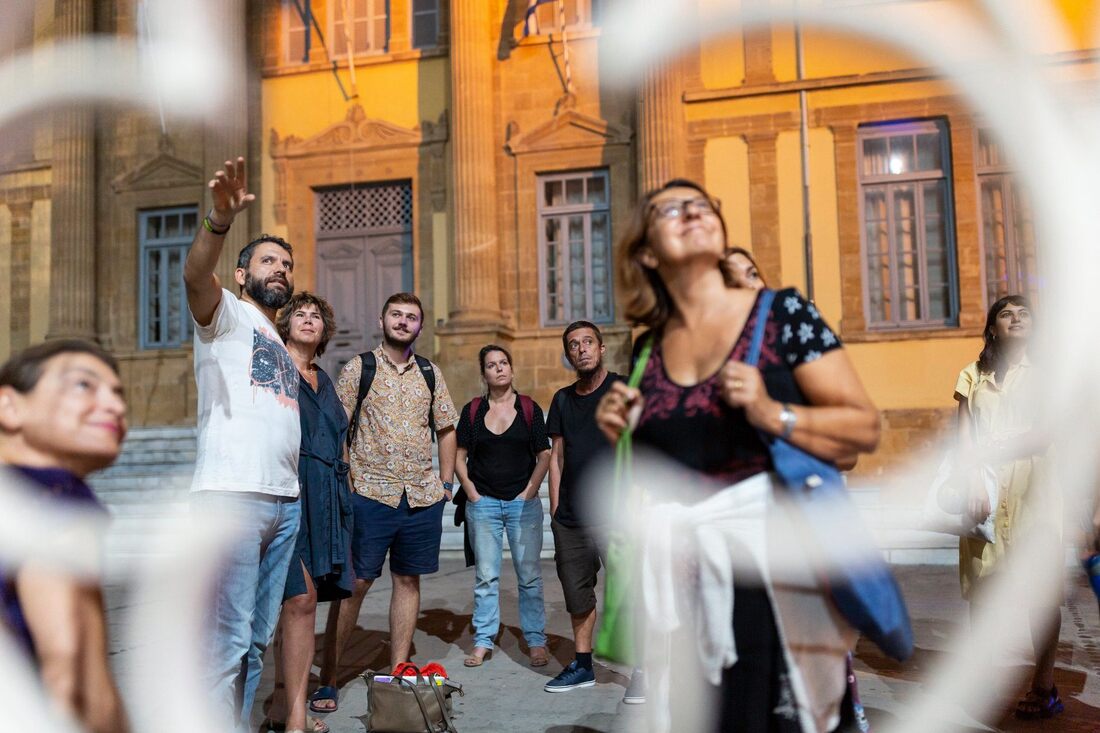It’s worth remembering, and how could we forget, that as Third Country participants of the Creative Europe programme, it is no longer about us.
Let us take a step back to understand why the EU wants to work with Third Countries. It might help us to understand how we now fit in. (Here we look at it through a cultural lens, but other fields will mirror this).
The New European Agenda for Culture (2018) identifies 3 objectives:
It is under Objective 3 that our role in Creative Europe is justified, (with a programme that still hits No.1 or No.2 or both). Within this, there are 3 areas of interest for the EU:
As Third Country partners [in the Culture sub-programme], we no longer have a central role - we cannot lead, and we cannot be full partners. Our role is brokered through another full partner, and the EU will not pay us for managing the project. Costs incurred in or by our country (or a combination of Third countries), must not exceed 30%.
Whether in the EEA (European Economic Area – Norway or Iceland), Accession/Pre-Accession countries or in Wider Europe, most European countries participate in Creative Europe, with 13 non-EU or EEA countries including Ukraine, Armenia, Georgia, Albania and Kosovo. (Switzerland, with its many referenda, has opted in and out, and its new Government is reconsidering participation from 2021.)
There is no precedent for a country leaving the European Union and there is a lot we don’t know. From the perspective of the EU, the UK is not identified in the current New European Agenda for Culture and there are no guidelines on how the EU wants to work with us. Similarly with the new Multi Annual Framework from January 2021-2027, we’ve not seen the guidance for Creative Europe, and don’t know whether all of the old Third Country rules still apply. From the UK perspective we know even less.
DCMS has mooted a replacement programme for those of us wanting to work internationally, and consultations have been held. But we don’t know:
We have to keep on top of this agenda if we are to keep our collaborations going. We need to be able to reassure our partners and potential partners that as Third Country participants we know how to help them to work with us. Without the support of a UK Creative Europe Desk, we who are taking these first steps as outsiders, will become the experts. We need to find a way to keep sharing.
Image: CONTESTED DESIRES Partner Meeting Cyprus by Emma Louise Photography.
Let us take a step back to understand why the EU wants to work with Third Countries. It might help us to understand how we now fit in. (Here we look at it through a cultural lens, but other fields will mirror this).
The New European Agenda for Culture (2018) identifies 3 objectives:
- Harnessing the power of culture for social cohesion and wellbeing
- Supporting culture-based creativity in education and innovation, and for jobs and growth
- Strengthening international cultural relations
It is under Objective 3 that our role in Creative Europe is justified, (with a programme that still hits No.1 or No.2 or both). Within this, there are 3 areas of interest for the EU:
- Supporting culture as an engine for sustainable social and economic development
- Promoting culture and intercultural dialogue for peaceful inter-community relations
- Reinforcing cooperation on cultural heritage
As Third Country partners [in the Culture sub-programme], we no longer have a central role - we cannot lead, and we cannot be full partners. Our role is brokered through another full partner, and the EU will not pay us for managing the project. Costs incurred in or by our country (or a combination of Third countries), must not exceed 30%.
Whether in the EEA (European Economic Area – Norway or Iceland), Accession/Pre-Accession countries or in Wider Europe, most European countries participate in Creative Europe, with 13 non-EU or EEA countries including Ukraine, Armenia, Georgia, Albania and Kosovo. (Switzerland, with its many referenda, has opted in and out, and its new Government is reconsidering participation from 2021.)
There is no precedent for a country leaving the European Union and there is a lot we don’t know. From the perspective of the EU, the UK is not identified in the current New European Agenda for Culture and there are no guidelines on how the EU wants to work with us. Similarly with the new Multi Annual Framework from January 2021-2027, we’ve not seen the guidance for Creative Europe, and don’t know whether all of the old Third Country rules still apply. From the UK perspective we know even less.
DCMS has mooted a replacement programme for those of us wanting to work internationally, and consultations have been held. But we don’t know:
- If, in its design, it will dovetail, mirror or speak to the Creative Europe programme;
- If it will support transnational programmes alongside bilateral programmes;
- The scale and whether proof of international income will be required or if it can be matched by partner activity and in-kind contribution alone;
- If it will allow a research and development focus or require us to make saleable products;
- Who will run the domestic alternative;
- And finally, if it will lose the focus on Europe.
We have to keep on top of this agenda if we are to keep our collaborations going. We need to be able to reassure our partners and potential partners that as Third Country participants we know how to help them to work with us. Without the support of a UK Creative Europe Desk, we who are taking these first steps as outsiders, will become the experts. We need to find a way to keep sharing.
Image: CONTESTED DESIRES Partner Meeting Cyprus by Emma Louise Photography.


 RSS Feed
RSS Feed